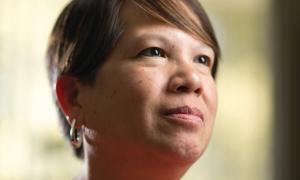author
Sarah-SoonLing Blackburn
Sarah-SoonLing Blackburn, Ed.D., is Learning for Justice’s associate director for learning in schools. Sarah has experience teaching at both the secondary and elementary levels and in 2011 was named Teacher of the Year at Lakeside Upper Elementary School in Lake Village, Arkansas. As a teacher educator, her areas of focus have included classroom culture, learning environments, and diversity, equity and inclusiveness. Sarah has an M.A. in Social Justice and Education from University College London’s Institute of Education and her doctorate from Johns Hopkins University. She is based out of

